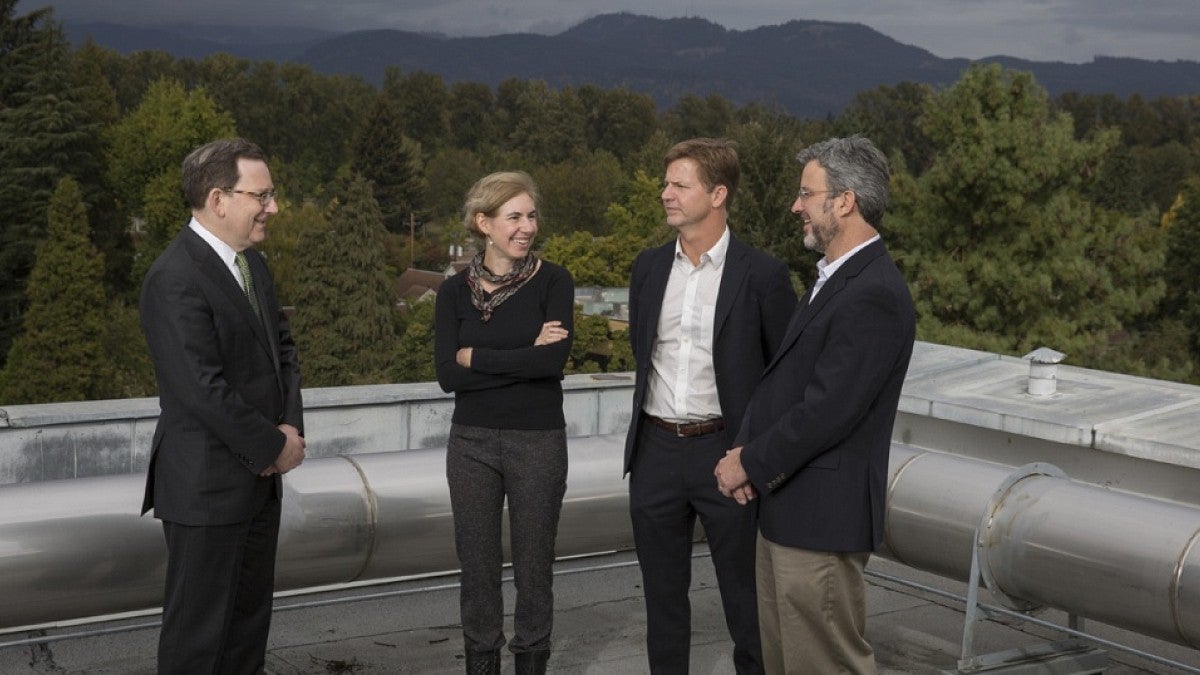UO biologist Bill Cresko was quick to spread the thanks. His selection as a 2016 fellow of the American Association for the Advancement of Science, he said, would not have happened without his strong scientific collaborations with others on campus.
The association — the world's largest multidisciplinary scientific society — announced its selection of 391 new members Nov. 21 and will publish the information in the Nov. 25 issue of the journal Science.
In the announcement, Cresko, also the UO's associate vice president for research, was cited for his "distinguished contributions to the development of new technology for economical genomic markers and to our understanding of the genetics of adaptation to new environments."
The technological advance centers on the molecular biology and computational tools for restriction-site associated DNA sequencing, which were developed in collaboration with Eric Johnson and John Postlethwait — both professors of biology — and their laboratories.
Cresko’s team used these techniques for their studies of how threespine stickleback species native to ocean water evolved genetically to survive in freshwater lakes, in some cases as little as 50 years. Based upon this and other work from UO, these genomic technologies have become widely used across the world for diverse applications ranging from conservation to genomic studies to crop improvement.
"I'm honored and of course very proud, but mostly for my laboratory and the University of Oregon," Cresko said. "All of this work is highly collaborative and interdisciplinary and involved molecular biologists, computer scientists and evolutionary geneticists working together in really creative ways that led to novel breakthroughs. I’m convinced it wouldn't have happened had my laboratory been at another university."
Cresko is the 37th current or retired UO faculty member listed as a fellow of the association.
“Professor Cresko’s research has advanced our understanding of the genetic basis of evolution and provided the scientific community with valuable tools and technologies,” said David Conover, UO vice president for research and innovation. “His election as an AAAS fellow is well-deserved and we congratulate him on this tremendous achievement, which is further testament to the value of the high-impact research being undertaken by our faculty.”
The 2016 fellows will be formally recognized Feb. 18 during the 2017 annual meeting of the association in Boston. The tradition association's fellows began in 1874. The organization, which was founded 1848, now has members in 91 countries.
— By Jim Barlow, University Communications


